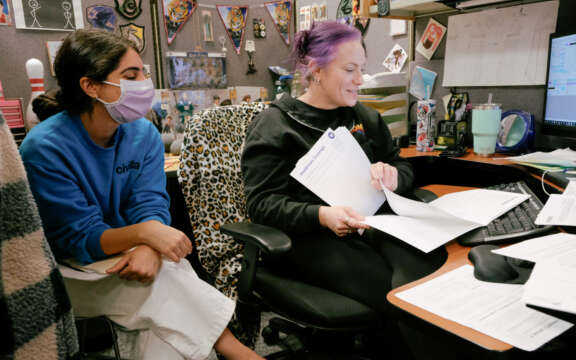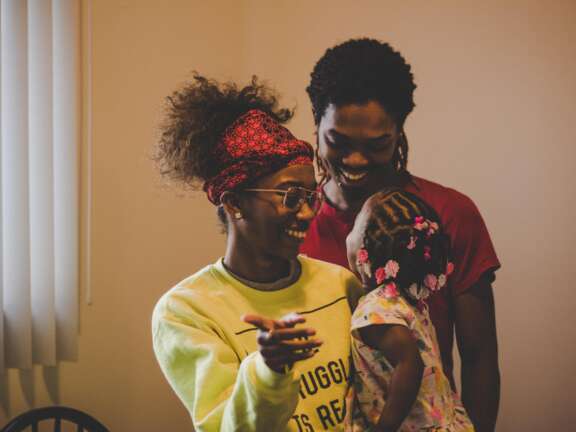
Project One Day
Building a one-day application process for Michigan’s largest benefit programs
background
each year, more than 2.5 million Michigan residents apply for public benefits from the Department of Health and Human Services, often waiting on a 20+ day approval process
context
To receive public benefits, residents are required to apply and then wait for a decision on their eligibility
Frontline staff in county offices across Michigan process each family’s application. A single staff member can be responsible for over 600 cases, including processing applications, renewals, changes, phone calls, and verifications.
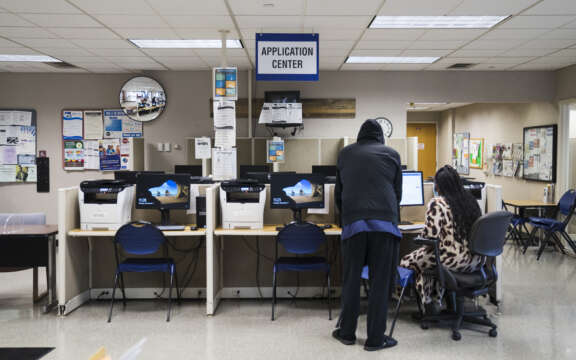
the challenge
due to the labor-intensive application process, frontline staff were spread thin and residents were kept in limbo as they waited
The waiting period exacerbated existing stress on residents during a vulnerable time as they tried to keep their family fed, write rent checks, and get medications filled. Faced with substantial workloads, staff were underwater as they worked to meet residents’ needs.
A week can feel like forever if you are in crisis. I’m trying to take care of a household and my baby. When things go wrong it creates stress on top of the normal, everyday stress of things.
— Resident, Michigan
Our goal was to make one day processing possible for the majority of applicants for Michigan's benefits programs
research
The Civilla team partnered with state leaders to reimagine how benefits were determined and create a more efficient, people-centered process
the research process
we invested in human-centered research, learning how the legacy process functioned for both frontline staff and residents
Together, we mapped out the typical benefits application experience. This process usually took about 20+ days from start to finish. But there wasn’t a guarantee that a resident would receive benefits, even if they qualified for them. Residents who were denied often reapplied — starting the process all over again.
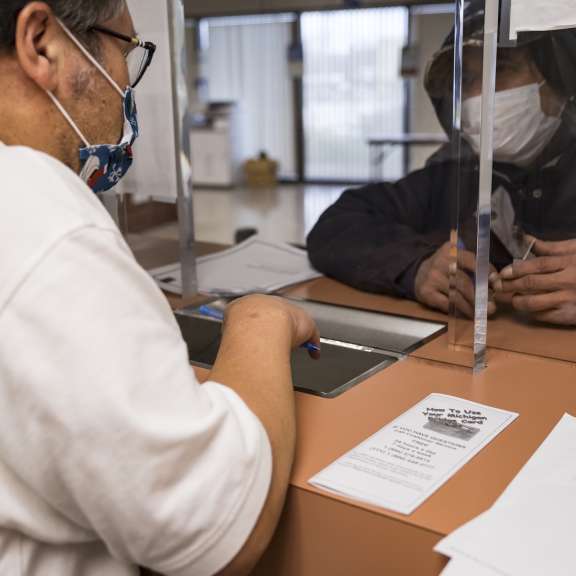
applicant needs
minimizing uncertainty and instability in a moment of crisis
When residents experience a crisis like losing their job or getting injured, public benefits programs are a crucial lifeline to pay for food or replace employer-provided benefits like healthcare.
A simplified benefits application process would help avoid back-and-forth with frontline staff, reduce chances for procedural errors, and set residents up to successfully navigate the process with confidence and assurance.
[Due to my injury] I can’t even move off of the couch. They were so concerned with how much [money] I make, and not what I was going through at the moment.
— Benefits applicant, Michigan
frontline staff needs
too many cases, not enough time
With the legacy process, frontline staff needed to navigate multiple steps and reach out to residents several times to process each case. This drew out the determination timeline and added unnecessary complexity to an already stressful workload.
Staff could spend more time supporting residents if they were able to sit down and process an application in one go.
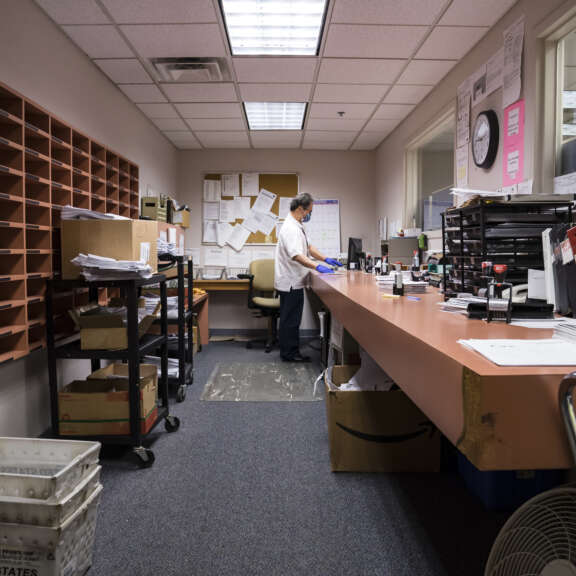
The pressure workers feel to process applications in high volume with complete accuracy is exhausting, leaving workers feeling bitter and some in frustrated tears.
— Frontline staff, MDHHS
design
Based on user research, Civilla reshaped the underlying policy and process to make one day determinations possible for staff and residents alike
policy changes
we conducted a policy analysis of each benefit program to find opportunities to streamline the application experience
Our research showed that across the U.S., there were many examples of policies to help make the benefits determination process simpler. Drawing on these examples, we worked with Michigan leaders to adopt key changes. Now, residents can self-attest to shelter and utility expenses, as well as assets under $15,000. This eliminates the need for frontline staff to collect additional documents like bank statements and leases.
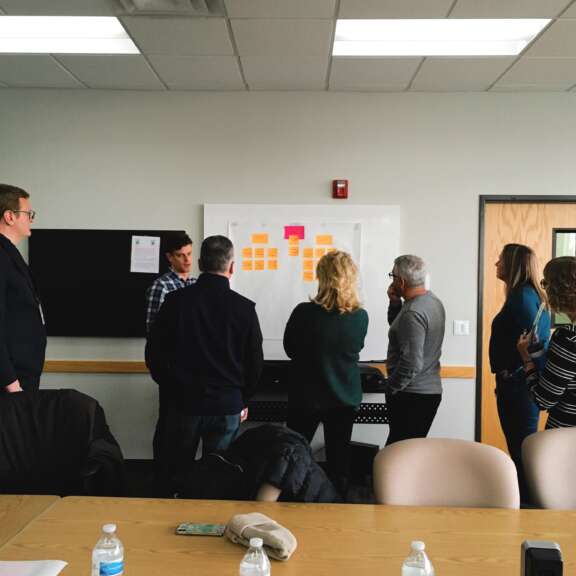
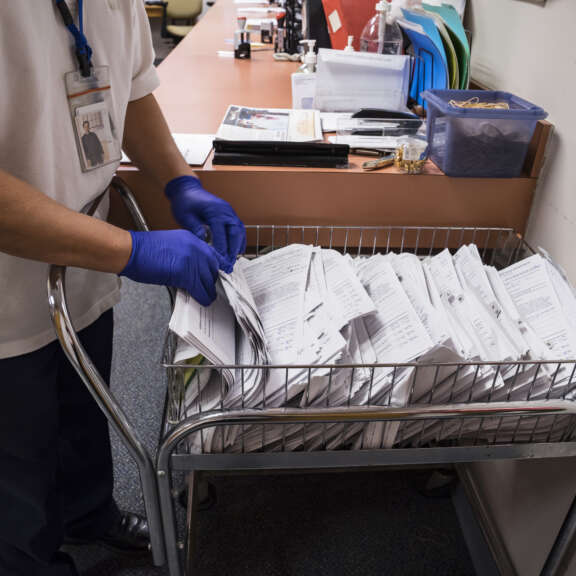
business process
After shadowing and interviewing frontline staff, Civilla redesigned the process with the north star goal of making one-day determinations possible
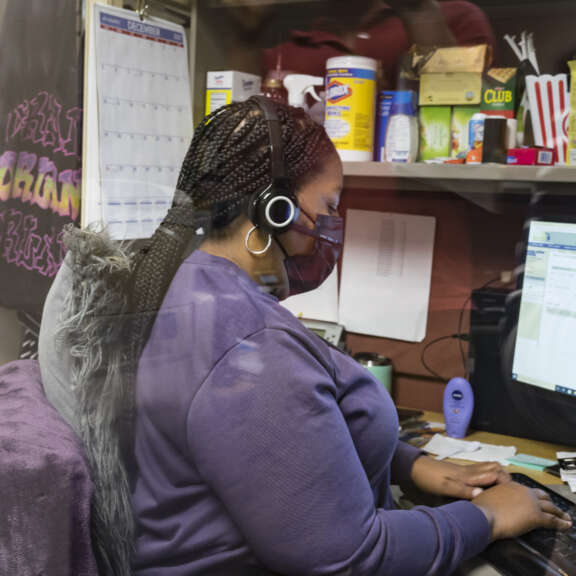
Two-hour registration+
When a new benefits application was received, it was registered within two hours to allow processing to begin.Front-end processing+
A caseworker was assigned to the application and verified the resident’s employment in a database to collect key information up-front.Two-call approach+
The caseworker called and left a voicemail so residents knew who was trying to reach them. They called again in a few minutes.Verification collection+
Caseworkers were responsible for reaching out to third parties like employers and landlords to verify application information on the resident’s behalf.Determination+
Once all the necessary verifications and interviews were complete, frontline staff provided a decision for the resident on whether they qualified for the benefit.
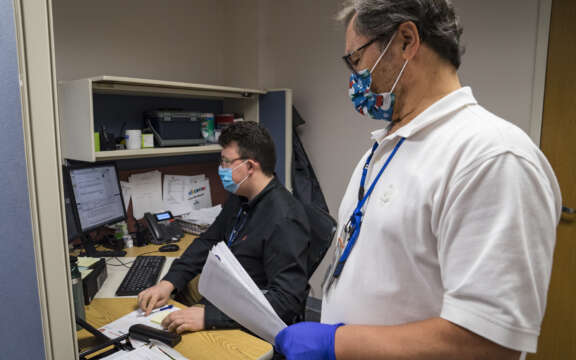
pilot
Civilla and MDHHS piloted the new one-day process to test its feasibility and impact
To conduct the pilot, our team partnered with two MDHHS offices that served different residential demographics. We collected data and feedback across four main categories: timeliness, approvals, accuracy, and volume.
To see how well the new process worked, a group of frontline staff followed the pilot and tracked 815 cases total. Civilla developed a monthly scorecard for key metrics, which helped measure the impact.
Over the course of the pilot, we also evaluated and worked to resolve tradeoffs, such as increased up-front workload for staff and perceptions around resident self-sufficiency raised by staff handling the verification process.
50+%
>90%
15%
30%
15%
It is really nice when you can certify an application from start to finish. I’m proud of being able to get something accomplished so efficiently for my clients. It’s nice to have the application processed and know that the client is happy.
— Frontline staff, MDHHS
Implementation
based on the success of the pilot program, MDHHS decided to roll out Project One Day statewide through a phased implementation process
training
Civilla incorporated learnings from the pilot into the implementation strategy
The team designed interactive small-group trainings to set staff, managers, and leaders up for success in local offices. This made it easier for participants to share ideas and ask questions. The training was designed around a “train-the-trainer” model, where office management could deliver One Day to their own teams. We made improvements throughout implementation based on feedback from staff, such as adding peer-to-peer learning and role playing scenarios.
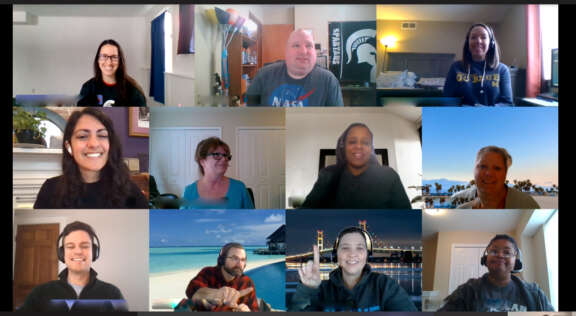
metrics
To measure success and help offices monitor their progress, Civilla created a web-based dashboard
The dashboard provided MDHHS leaders with a real-time look at statewide performance metrics, as well as breakdowns by different regions, counties, and offices.
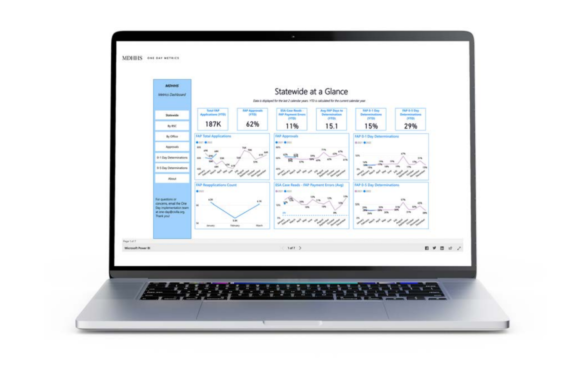
assessing the impact
The new process received overwhelmingly positive feedback from residents
Residents expressed relief, knowing they'd be able to access benefits quickly when they needed them. Having basic needs like food or healthcare covered gave people peace of mind while they took important next steps to support themselves and their families.
Some staff resisted the new process since it required them to spend more time processing cases up front. But many shared their feelings of greater job satisfaction in knowing they were doing all that they could to help residents succeed.
It meant a lot to me, knowing that staff cared enough to move my application through so quickly.
— Resident, Michigan
conclusion
Project One Day proved that same day processing is possible for public benefits delivery
Across the country, Civilla and MDHHS hope that these changes can shift expectations and set a new north star goal for what service delivery looks like
Project One Day demonstrated that states can provide residents with fast, dignified service by making changes to their policies and business processes.
While outcomes were not sustained in Michigan due to pressures during COVID-19 pandemic, One Day established a higher bar for what is considered to be normal and accepted when serving low-income residents.
These changes are most beneficial when implemented together, but states who need to make more incremental improvements do not need to implement the full model to see gains. Implementing parts of the One Day process will still provide a positive impact to residents.
